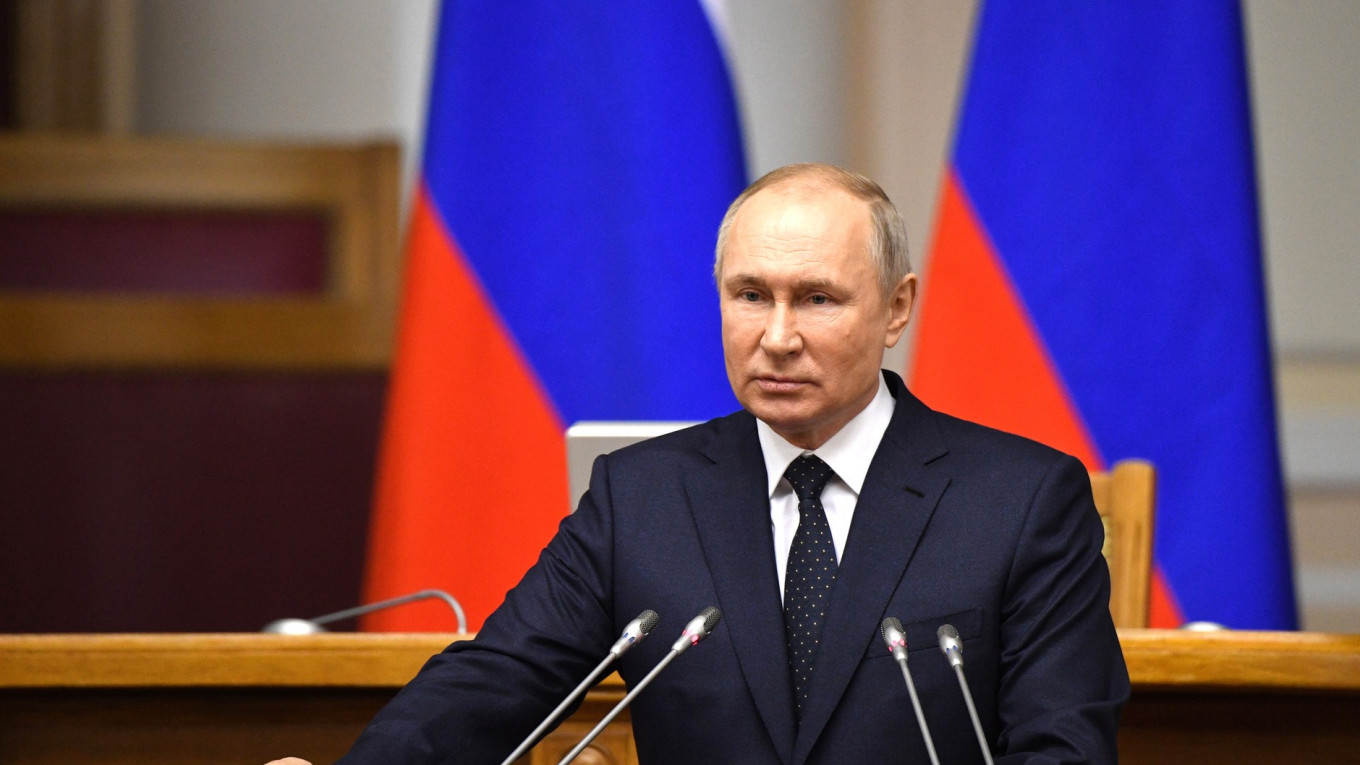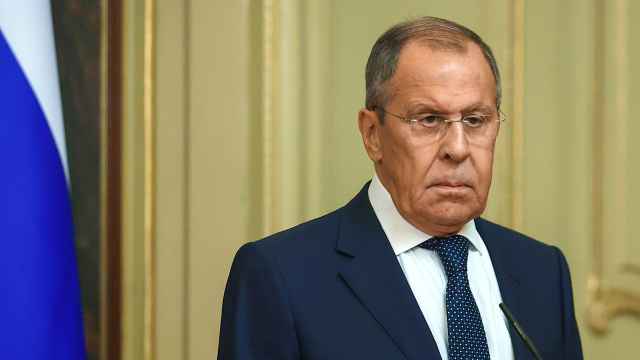Russian President Vladimir Putin has signed into law fines for publishing information and reports from “foreign agent” media without identifying the outlet’s status amid what observers call tightening restrictions on dissent ahead of key elections.
Under to the new law that Putin signed Friday, media organizations can be fined up to 50,000 rubles ($650) for distributing a report without indicating that the distributed material was produced by a “foreign agent.”
Individual journalists face fines of up to 2,500 rubles ($33) and officials up to 5,000 rubles ($66) for the same violations.
The penalties were introduced 10 days after Russia declared Meduza, one of the country’s most-read independent news outlets, a “foreign agent.” Its chief editor Ivan Kolpakov has said the designation will allow Russian authorities to block Meduza and imprison its journalists for reporting errors as well as press felony charges against him.
Meduza, which began publishing out of Latvia in 2014 after its then-chief editor was driven out of Russia, is among 19 news outlets currently labeled “foreign agents.”
Russia in 2017 labeled the U.S. government-funded Radio Free Europe/Radio Liberty and Voice of America news outlets as “foreign agents” after Russian state-funded RT was declared a foreign agent in the United States.
The new media penalties come two months after Putin introduced fines of up to 2,500 rubles for anyone who shares information about or republishes the work of “foreign agents” without the appropriate designation.
The “foreign agents” law first passed in 2012 initially targeted media outlets and civil society groups and has since been gradually expanded to encompass individual journalists and bloggers. Critics say the law’s rigorous auditing requirements for branded entities and steep fines for violations have a chilling effect on Russian civil society.
The latest update to Russia's "foreign agents" law comes ahead of this fall's parliamentary elections, where the Kremlin seeks to maintain the ruling, pro-Putin United Russia party's majority despite its historically low approval ratings.
A Message from The Moscow Times:
Dear readers,
We are facing unprecedented challenges. Russia's Prosecutor General's Office has designated The Moscow Times as an "undesirable" organization, criminalizing our work and putting our staff at risk of prosecution. This follows our earlier unjust labeling as a "foreign agent."
These actions are direct attempts to silence independent journalism in Russia. The authorities claim our work "discredits the decisions of the Russian leadership." We see things differently: we strive to provide accurate, unbiased reporting on Russia.
We, the journalists of The Moscow Times, refuse to be silenced. But to continue our work, we need your help.
Your support, no matter how small, makes a world of difference. If you can, please support us monthly starting from just $2. It's quick to set up, and every contribution makes a significant impact.
By supporting The Moscow Times, you're defending open, independent journalism in the face of repression. Thank you for standing with us.
Remind me later.






